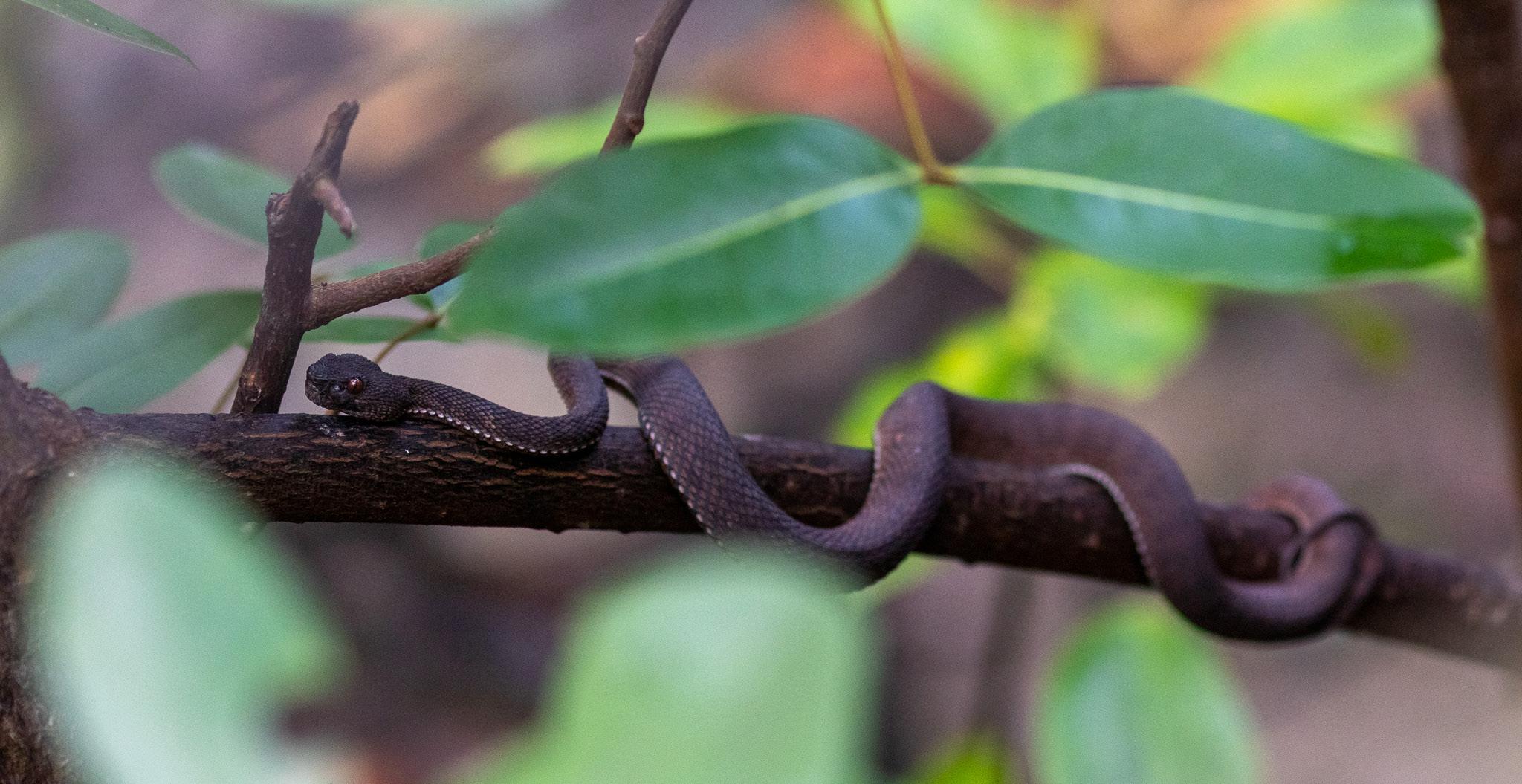
4 minute read
Singapore Snippets
Discovering Items of Interest on the Red Dot
by Marta Ferrer Lubeck
Advertisement
Pasir Ris Park
Pasir Ris Park is a 70-hectare coastal park located in eastern Singapore and faces Pulau Ubin. This is one of the few beach parks on the Red Dot, and its name is believed to derive from the Malay words for ‘long sand’ (Pasir) and ‘shred or slice’ (Hiris). The breezy beach, ample trails, and fascinating mangrove forest are a few of the reasons why a visit to Pasir Ris Park is well worth the trip.

Path through the trees
Beach and Trails
Visitors can enjoy a relaxed walk on the beach while taking in the beautiful views and spotting mollusks, crabs, and other coastal fauna. Families can delight in hours of fun in the large, well-maintained playground. The trails loop around Pasir Ris Park for up to 6 kilometers, offering ample space for walkers, runners, and bikers. Tucked between these areas is a hedge maze which needs some maintenance but can still be enjoyed from beginning to end. There are barbecue and camping facilities at Pasir Ris Park, but permits remain suspended for the time being to observe safe distancing measures.
Helena Cochrane is a regular visitor at Pasir Ris Park. “I think Pasir Ris is one of the magical spots in Singapore, for its wide-open spaces, which are also sheltered by large and majestic rain trees. In a city in which space is at an absolute premium, this space does a lot to let visitors savor a walk in which you cross no streets, nor see a lot of cargo ships anchored offshore, nor dodge bicycles to keep on a path near the water. I like that it's on the coast and has a variety of trees in addition to the palms. I like that there are kayakers to watch or join, and that you can stroll along a grassy path to get near the therapeutic riding stables.”
Pasir Ris Park is a great location for birdwatching. On one of my visits, I met Kelvin, a professional photographer and park regular who waits patiently to capture striking shots of kingfishers, woodpeckers, hornbills, egrets, and other birds frequenting the park. This day, his camera was trained on a spotted wood owl perched on a high branch not far from the beach.

Macque enjoying a snack
Mangrove Forest
The mangrove forest is its own world within Pasir Ris Park. Mangrove trees and other lush greenery surround the visitor while walking down the 1.5-kilometer boardwalk. The forest is home to long-tailed macaques, monitor lizards, mudskippers, mud crabs, and other wildlife. Snakes are shy animals that prefer to stay hidden, but in this mangrove forest it is not uncommon to catch sight of pit vipers, reticulated pythons, and paradise tree snakes. Robert Heigermoser has been a nature guide since 2002, and his company Ulu Singapore provides nature walks throughout the island. I signed up for the Pasir Ris Park nighttime walk. Initially, being on the boardwalk in complete darkness save for a couple torchlights was intimidating. However, I was soon awed by bird sounds interrupting the silence, as well as the nighttime activity of watersnakes, mudskippers, crabs, and other mangrove forest residents.

Mangrove Pit Viper
Trash accumulation is plain to see in some areas of Pasir Ris Park. There are cleaning crews on the park grounds, and AWA organized a beach clean-up recently. However, refuse continues to flow in from the Johor Straits, and some makes its way to the mangrove forest, getting stuck behind tree roots. This is a stark reminder that we must do all we can to preserve our fragile natural habitats.
Other Activities and How To Get There
There are a few restaurants and cafes on the park grounds, as well as Gallop Stable, an equestrian center that provides riding lessons and pony rides. Wild Wild Wet is one of Singapore’s largest water parks and was voted Top 5 Water Parks in Asia by Trip Advisor Traveller’s Choice in 2019 and 2020.
Pasir Ris Park is a 10-minute walk from Pasir Ris MRT station and close to a few bus stops. There are carparks conveniently located around the park.

Marta moved to Singapore with her husband and two children in July 2020. She loves to explore Singapore with the AWA walking, hiking and photography groups.










